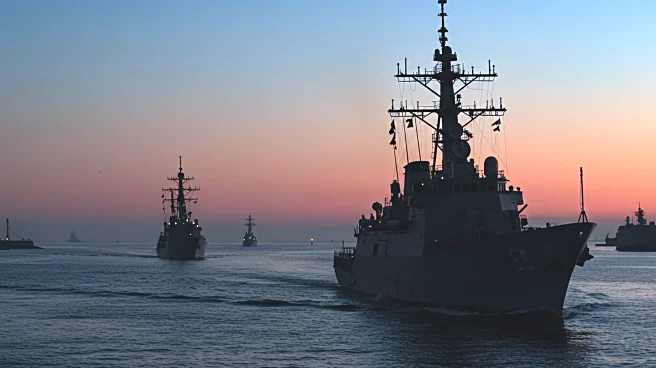What's Happening?
The Royal Navy has been actively tracking the Russian destroyer Vice Admiral Kulakov and two accompanying vessels as they navigated through the English Channel. This operation is part of the Royal Navy's ongoing efforts to monitor Russian naval movements in UK waters. The patrol ship HMS Trent initiated the tracking of Kulakov off Great Yarmouth, following its westbound journey through the channel. The Russian convoy included the military cargo ship Sparta and the tanker General Skobelev, both heavily sanctioned vessels. The convoy paused briefly in Lyme Bay before continuing into the North Sea and eventually the Baltic. The Vice Admiral Kulakov, an Udaloy-class antisubmarine warfare destroyer, was originally commissioned in 1981 and is equipped with a missile-launched torpedo system.
Why It's Important?
The tracking of Russian naval movements by the Royal Navy underscores the strategic importance of the English Channel as a critical maritime route. This operation highlights ongoing geopolitical tensions and the need for vigilance in monitoring military activities in international waters. The presence of heavily sanctioned vessels like Sparta and General Skobelev further emphasizes the complexities of international sanctions and their enforcement. The Royal Navy's actions are crucial in maintaining security and stability in the region, ensuring that any potential threats are closely observed and managed.
What's Next?
Continued monitoring of Russian naval activities in UK waters is expected, as the Royal Navy remains committed to safeguarding its maritime borders. Future operations may involve increased surveillance and collaboration with allied forces to address any emerging threats. The geopolitical landscape may prompt further diplomatic discussions regarding naval movements and international security protocols.










